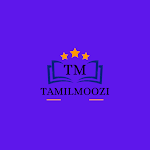Introduction
The 10th standard marks a critical academic milestone in a student’s educational journey. Among the various subjects, Social Science holds a unique place as it encompasses History, Geography, Civics, and Economics — vital areas that shape a student’s understanding of society and the world. One-mark questions in Social Science play a pivotal role in assessing students’ factual recall and conceptual clarity. With the advent of digital learning, online tests for one-mark questions have gained immense popularity and utility. This essay explores the importance, structure, advantages, and challenges of such online assessments, especially in the context of 10th-grade Social Science education.
Understanding One-Mark Questions in Social Science
One-mark questions are typically objective in nature — multiple-choice questions (MCQs), fill-in-the-blanks, true/false, or match-the-following types. They are designed to:
*Test quick recall of facts and data.
*Measure the breadth of knowledge across the syllabus.
*Strengthen foundational understanding.
In Social Science, these questions span across timelines in History, maps and locations in Geography, constitutional elements in Civics, and statistical understanding in Economics. These questions might seem simple but are essential to ensure that students have grasped the key facts and can retrieve them accurately under exam pressure.
The Rise of Online Testing
With increased digital literacy and smartphone access, educational methods have undergone a transformation. Online testing platforms and applications are now widely used for academic evaluations and practice.
Online tests for one-mark questions are now integrated into:
*School-based e-learning platforms.
*Mobile apps specifically tailored for state and national boards.
*Self-assessment portals created by teachers and educational institutions.
This shift has been accelerated by the COVID-19 pandemic, which forced a mass transition from physical to virtual classrooms. Now, even in post-pandemic times, the advantages of online testing have sustained its popularity.
Structure of Online One-Mark Tests
An online one-mark test for 10th standard Social Science generally includes:
1)Time-limited quizzes – usually 10–30 minutes for 20–50 questions.
2)Randomized question sets – pulling from a large database to prevent memorization.
3)Instant feedback – right or wrong answers displayed immediately.
4)Score tracking – performance analytics for students and teachers.
5)Gamification – points, leaderboards, and badges to encourage participation.
Advantages of Online One-Mark Tests
1)Convenience and Accessibility
*Students can take tests anytime, anywhere.
*Useful for revision during travel, holidays, or non-school hours.
2)Immediate Feedback
*Unlike traditional methods, students receive real-time feedback.
*Encourages self-correction and deeper understanding.
3)Repeated Practice
*Students can take multiple tests until they master the topic.
*Builds confidence for final board exams.
4)Time Management
*Enhances speed and accuracy through frequent timed testing.
*Prepares students for the pressure of real examination settings.
5)Engagement and Motivation
*Use of colors, visuals, and interactive designs makes learning fun.
*Reduces the monotony of textbook-based study.
6)Performance Tracking
*Teachers and parents can monitor progress through dashboards.
*Helps in identifying weak areas for targeted improvement.
7)Cost-Effective
*Many apps and websites offer free access.
*Saves money on printing and physical materials.
Challenges and Limitations
1)Digital Divide
*Not all students have access to smartphones, tablets, or internet.
*Rural and economically weaker students are at a disadvantage.
2)Distraction and Misuse
*Presence of games and social media may divert attention during tests.
*Online cheating is a concern without proper supervision.
3)Quality of Content
*Not all online tests are created by experts.
*Some may have errors or outdated questions.
4)Over-Reliance on Objective Questions
*Excessive focus on one-mark questions can neglect analytical or writing skills.
*May lead to rote learning instead of conceptual understanding.
Best Practices for Effective Online One-Mark Testing
Curriculum Alignment
*Ensure that questions strictly follow the latest syllabus and textbook content.
*Include model questions from board exam blueprints.
Balanced Question Bank
*Cover all chapters equally.
*Include questions of varying difficulty levels.
Teacher Involvement
*Teachers should moderate content to ensure quality.
*Should guide students on test-taking strategies.
Parental Supervision
*Especially for younger students, parents can ensure discipline during tests.
*Encouragement from home can boost motivation.
Regular Updates
*Platforms should update questions according to curriculum changes.
*Addition of new patterns like assertion-reason or source-based MCQs can be helpful.
Popular Platforms for Online Social Science One-Mark Tests
*Tamil Nadu Government’s Kalvi TV & E-Learning Portals
*Diksha App by the National Council of Educational Research and Training (NCERT)
*Private Ed-Tech Apps like BYJU’S, Toppr, and Khan Academy
*YouTube Channels and Telegram Groups sharing daily quizzes
*Google Forms-based Tests by school teachers and online tutors
Impact on Student Performance
*Research and surveys have shown that regular online practice with one-mark questions can:
*Improve overall retention and recall ability.
*Reduce exam anxiety through simulated practice.
*Improve average scores in board exams by 10–15%, especially in objective sections.
A Case Study: Tamil Nadu SSLC Social Science Exam
Tamil Nadu SSLC (Secondary School Leaving Certificate) examination includes a substantial number of one-mark questions. Students practicing online tests from January to March have reported:
*Better performance in map-based and chronology questions.
*Stronger memory recall during revision sessions.
*Enhanced confidence in facing unfamiliar MCQs.
This shows that when online tests are aligned properly with exam patterns, they can significantly enhance outcomes.
The Future of Online One-Mark Testing
*With advancements in AI, machine learning, and adaptive testing, the future holds great promise:
*Personalized Learning Paths – Tests adapt based on student performance.
*Voice-based Questions – For better accessibility.
*Multilingual Support – Especially important in states like Tamil Nadu for bilingual education.
*Integration with Augmented Reality (AR) – Making geography and history come alive
Conclusion
Online testing for one-mark questions in 10th standard Social Science has become an indispensable educational tool. While it cannot replace traditional learning, it serves as a powerful supplement that builds knowledge, confidence, and readiness for board exams. With proper guidance, inclusivity, and quality control, it can bridge gaps in education and prepare students for both academic and real-world success.
As we move towards a digitally empowered society, harnessing technology for smarter education is not just an option — it’s a necessity
10th social| தினமும் ஐந்து ஒரு மதிப்பெண் வினாக்கள் |Online Test-6






0 கருத்துகள்